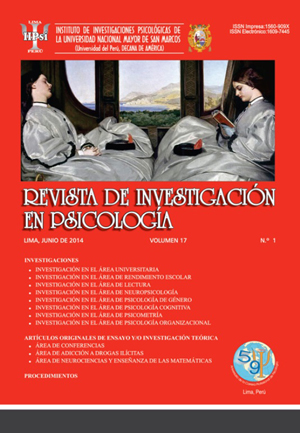Independent effects of wife’s domestic power and husband’s egalitarian beliefs on fertility desire and contraceptive use
DOI:
https://doi.org/10.15381/rinvp.v17i1.8977Keywords:
women’s domestic power, men’s egalitarian beliefs, fertility desire, contraceptive useAbstract
Do wives’ household decision-making power and husbands’ egalitarian beliefs concerning women’s roles independently determine contraceptive use? Do they determine fertility desire in analogous ways? What is the function of age, education, and work in these processes? Analyses of Demographic and Health Surveys’ Couple Recode data sets targeted nonpregnant women living with a sexual partner and the partner. The analyses encompassed rural and urban samples from India (N = 23,342), Indonesia (N = 7,219), and Nigeria (N = 7,062), and a rural sample from Ethiopia (N = 2,531). Wife’s fertility desire decreased as husband’s egalitarianism in urban settings and wife’s power in rural areas increased. Regardless of setting, contraceptive use increased as husband’s egalitarianism and wife’s power increased, and beliefs and power presented greater effects on contraceptive use than on fertility desire. Removal of age, education, and work variance from the predictors reduced the odds-ratios by less than 50 per cent and similarly for power and beliefs. Programs may need to target couples to maximize the impact of interventions to enhance contraceptive use via gender empowerment.Downloads
Published
Issue
Section
License
Copyright (c) 2014 Federico R. Léon

This work is licensed under a Creative Commons Attribution-NonCommercial-ShareAlike 4.0 International License.
THE AUTHORS RETAIN THEIR RIGHTS:
a. The authors retain their trademark and patent rights, and also on any process or procedure described in the article.
b. The authors retain the right to share, copy, distribute, execute and publicly communicate the article published in the Journal of Research in Psychology (for example, place it in an institutional repository or publish it in a book), with acknowledgment of its initial publication in the Journal of Research in Psychology.
c. Authors retain the right to make a subsequent publication of their work, to use the article or any part of it (for example: a compilation of their work, lecture notes, thesis, or for a book), provided that they indicate the source. of publication (authors of the work, magazine, volume, number and date).























